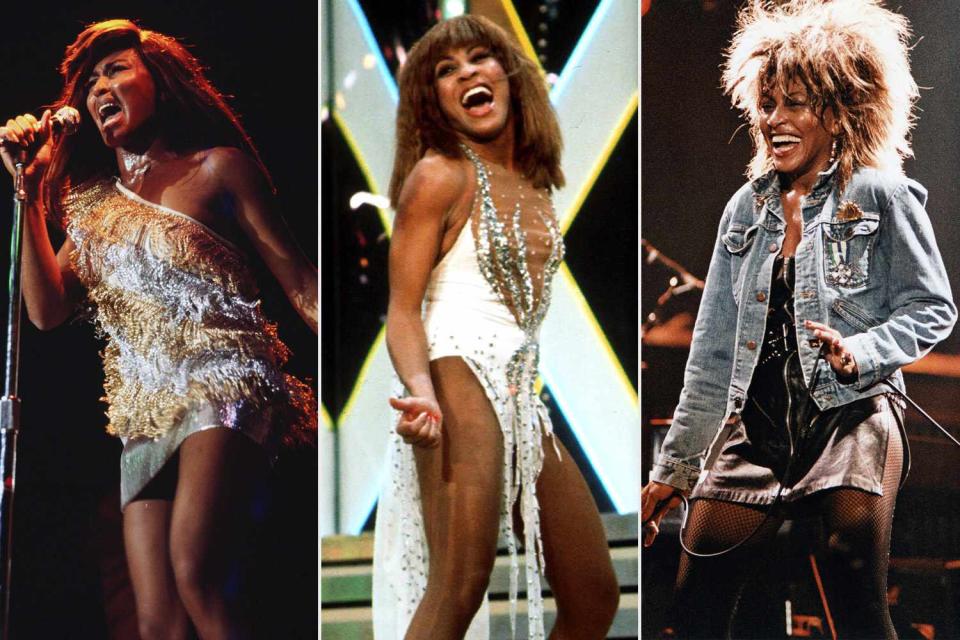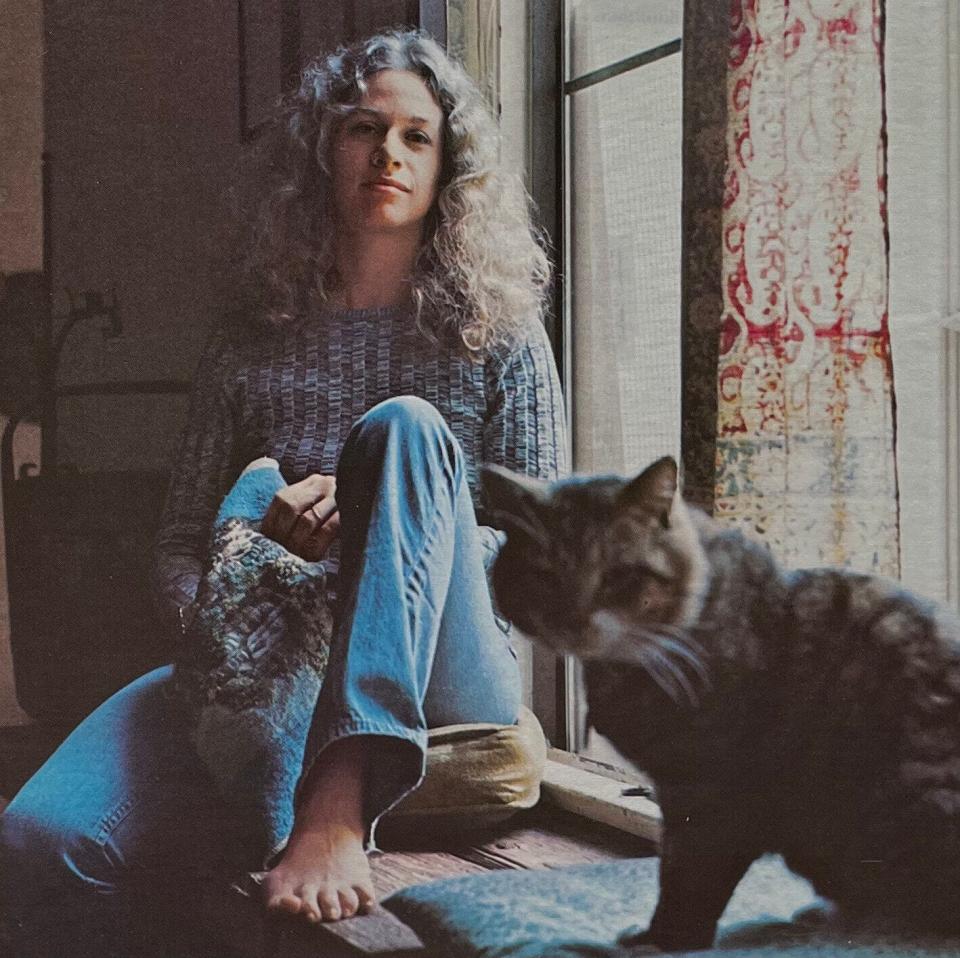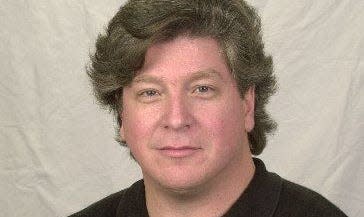Songwriters' best bet for fame: Hitch that lyric sheet to a star | MARK HUGHES COBB
Anna Mae Bullock introduced me not only to women who rock, but shimmering silvery miniskirts, and bless her for the miracle of those legs, which like Michaelangelo's hewn figures for the tomb of the Medicis, made me feel at home in that stout-limbed tribe.
Tina Turner should churn through any rock playlist/mixtape, because if you can't get workout- or driving-pumped to "River Deep, Mountain High" or "Nutbush," you should be stopping by the ER, not the gym.

But in my musical life, I've played a lot more by Cynthia Weil, who died June 1. Of course that's partly because, hard as I might scream, I'm not gonna hit Tina's notes.
More: Why have a beef with asking why? And other questions to challenge an AI | MARK HUGHES COBB
But Weil was a diamond-cutter. With husband Barry Mann, she wrote scores of songs you know, whether you know you know, or not:
"You know the neon lights are bright/on Broadway."
"You've lost that lovin' feelin'/now it's gone. Gone. Gone. Whoa-oho-o."
"Don't it seem like/kicks just keep gettin' harder to find?"
"We've gotta get out of this place/if it's the last thing we ever do."
You might have recalled, respectively, the Drifters and George Benson; the Righteous Brothers; Paul Revere & the Raiders; and the Animals. You might also have thought those acts wrote their own material, as the Raiders and Animals did. But each (including Benson, who cut his first disc in 1964) rose up in the shadow of the Brill Building.

That stable of songwriter-producers churned out so much indelible pop it became its own mini-genre, a metonym for the '60s music it spawned.
Even before rock 'n' roll, Brill Building songwriters were crafting hits for big bands, for Benny Goodman, Glenn Miller, the Dorsey brothers and more. But their more sophisticated lyrical/melodic content took off in a youth-oriented baby boom, bringing old-fashioned croon, swing and harmonies to meld with guitars, belters and backbeats.
In addition to Mann and Weil, another once-married couple, Gerry Goffin and Carole King turned out a few, too: "Up on the Roof," "(You Make Me Feel Like) A Natural Woman," "The Loco-Motion," "One Fine Day," "Will You Still Love Me Tomorrow?," "Pleasant Valley Sunday," "Some Kind of Wonderful," "Take Good Care of My Baby," "Go Away Little Girl" and scads more. On her second studio album, "Tapestry," which sold 25 million worldwide and won four Grammys, King cut a few of those, but also carved newer solo songs into the pop-mosphere: "You've Got a Friend," "So Far Away" and "I Feel the Earth Move."

When Goffin-King or Mann-Weil weren't available, artists had to fall back on B-side hacks such as Burt Bacharach and Hal David ("Do You Know The Way to San Jose," "I Just Don't Know What to Do With Myself," "What the World Needs Now is Love," "I'll Never Fall in Love Again," "Walk on By," "I Say a Little Prayer," "The Look of Love," "Raindrops Keep Falling on My Head," "Close to You," "Only Love Can Break a Heart," "Alfie," "One Less Bell to Answer," "Always Something There to Remind Me," "Anyone Who Had a Heart," "This Guy's in Love with You"); Jerry Leiber and Mike Stoller ("Hound Dog," "Love Potion No. 9," "Jailhouse Rock," "Kansas City," "Ruby Baby," "Fools Fall in Love," "Youngblood," "You're so Square," "Charlie Brown," "Trouble," "Poison Ivy," "Stand By Me," and a collaboration with Mann-Weil in "On Broadway"); Neil Diamond ("Girl, You'll be a Woman Soon," "Sweet Caroline," "I'm a Believer," "Red Red Wine," "A Little Bit Me, A Little Bit You," "Kentucky Woman"); Doc Pomus and Mort Shuman ("A Teenager in Love," "This Magic Moment," "Save the Last Dance for Me," "Surrender," "Little Sister," "Marie's the Name," "Viva Las Vegas"); Neil Sedaka ("Breaking Up is Hard to Do," "Calendar Girl," "Love Will Keep Us Together," "Oh! Carol," "Where the Boys Are," "Stairway to Heaven" ... not that one); or Ellie Greenwich with Jeff Barry and co-songwriters including Phil Spector ("Da Doo Ron Ron," "Be My Baby," "Do Wah Diddy Diddy," "Christmas -- Baby Please Come Home," "Leader of the Pack," "River Deep, Mountain High," "Then He Kissed Me," "Baby I Love You," "Chapel of Love," "It's My Party.")
Had the Brill Building imploded, there'd be a lesser gold standard for doo-wop groups, teen-pop idols, The Monkees, Dionne Warwick, Elvis Presley and a gaggle of what hasn't been dubbed anything better than "girl" singers, the amazing voices and pop sensibilities of Dusty Springfield, Petula Clark, Connie Francis, Lesley Gore, Skeeter Davis, Brenda Lee, Mary Wells, Sandie Shaw, Cilla Black, Lulu ....
They really need something more fabulous than "girl singers," especially as most of their careers spun well out of teen years. Dame warblers? Nah. Too much like a songbird.
Broad belters? Doll divas? Fem-artistes? Chanteuse ... y...ians?
Pop manufacturers were the standard for decades, and of course they still exist, lurking behind the gloss of star faces. Even hitmakers connected with their own writing picked up covers here and there. The Bee Gees (Barry, Robin and Maurice Gibb) wrote "Islands in the Stream," not Dolly and Kenny. Avril Lavigne wrote "Breakaway," not Kelly Clarkson. Bruno Mars wrote "Forget (and its non-radio-friendly alternate) You," not CeeLo Green. Jessie J and Dr. Luke wrote "Party in the U.S.A.," not Miley Cyrus. Sia wrote "Pretty Hurts," not Beyonce. "Whataya Want from Me" was written by Pink, not Adam Lambert. A five-person team including Jay Z, Tricky and the-Dream wrote "Umbrella," not Rihanna. Christina Milian wrote "Baby," not Justin Bieber. Pharrell Williams and Chad Hugo wrote "Milkshake." Max Martin wrote "Hit Me Baby (One More Time)," not Britney Spears. Linda Perry wrote "Get the Party Started," not Pink; Perry also wrote "Beautiful," not Christina Aguilera. Lady Gaga wrote "Elevator," not The Pussycat Dolls. Taylor Swift wrote "Better Man," not Little Big Town. Prince wrote "Nothing Compares 2 U" and "Manic Monday," not Sinead O'Connor or the Bangles. Shel Silverstein wrote "A Boy Named Sue," not Johnny Cash.
Songs written or co-written by Sia or Pharrell Williams could eat up a whole column or six. Williams is responsible for a lot more than his No. 1 smash "Happy," though he is the sole person responsible for not looking up what a room without a roof is called:
A patio.
Substandard housing.
Or the world's second-easiest escape game. Not necessarily joyous, Pharrell.
It wasn't really until the Beatles that musicians were expected to write their own. The Rolling Stones began as a blues cover band; John and Paul urged them to try their hands, and wrote "I Wanna Be Your Man" for Mick, Keef, and the other boys, to prime the pump.
And they were following the prototype of Buddy Holly and the Crickets ― Charles Hardin Holley wrote or co-wrote "That'll Be the Day," "Not Fade Away," "Peggy Sue," "True Love Ways," "Everyday," "It's So Easy," "Maybe Baby," "Words of Love" all before he died in that Clear Lake Iowa plane crash at 22, so yes, again, anyone over 22 who hasn't yet written and recorded eight or nine iconic songs should all feel a bit sad ― and Bo Diddley and Chuck Berry, both of whom practically created their own mini-genres of churning, choogling blues-rock-bop-pop.
While the latter-day Elvis (Costello, born Declan Macmanus) is known largely for often acidic, incisive rock-pop songwriting ― look up his teamwork with Bacharach to hear two of the most dramatically melancholic songs ever, "God Give Me Strength" and "This House is Empty Now" ― his namesake Elvis (Presley) never wrote a lick. Frank Sinatra, ditto, though both certainly kept songwriters like Paul Anka, Harry Warren, Johnny Mercer, Harold Arlen, Cole Porter, Pomus-Shuman and Leiber-Stoller rolling in royalties.
Weird how time treats creators. I'll bet Joe Scratch-off could name four playwrights from the Renaissance era, four classical composers, and four 19th century novelists before he could identify half of today's song-crafters. A writer's best bet? Hitch that lyric sheet to a pop star.

Reach Tusk Editor Mark Hughes Cobb at [email protected].
This article originally appeared on The Tuscaloosa News: 'Songwriters' must hitch that lyric sheet to a star | MARK HUGHES COBB
